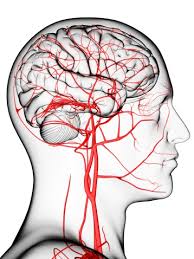
![]()
In our fast-paced world, understanding the potential triggers of strokes is crucial for maintaining optimal health. Strokes can have severe consequences, but awareness of their causes empowers individuals to take preventive measures. This article explores the five major stroke causes that everyone should be aware of.
Hypertension and the Silent Threat
“The High-Stakes Connection Between Hypertension and Strokes”
Hypertension, or high blood pressure, stands as a silent threat to cardiovascular health. The elevated pressure in the arteries can lead to weakened blood vessels in the brain, increasing the risk of a stroke. Regular monitoring and management of blood pressure are key in preventing this major cause of strokes.
Uncontrolled hypertension damages arteries over time, creating conditions ripe for a stroke. The force of blood against the vessel walls can lead to an aneurysm or the formation of blood clots, both of which are precursors to a stroke. Lifestyle modifications, such as a low-sodium diet, regular exercise, and stress management, play a pivotal role in keeping blood pressure within a healthy range.
Lifestyle Choices and Their Impact
Unraveling the Link Between Unhealthy Habits and Stroke Incidence
Certain lifestyle choices significantly contribute to stroke risk. Smoking, excessive alcohol consumption, and a sedentary lifestyle can elevate the chances of a stroke. Smoking, in particular, introduces harmful chemicals into the bloodstream, leading to the narrowing and hardening of the arteries. This section delves into the importance of adopting a healthy lifestyle to mitigate these risk factors.
Moderation and awareness are key in reducing the impact of lifestyle choices on stroke risk. Smoking cessation programs, limited alcohol intake, and incorporating regular physical activity into daily routines can significantly contribute to overall cardiovascular health. Small, gradual changes can lead to substantial improvements in reducing stroke risk associated with lifestyle factors.
Diabetes – A Sweet Danger
Navigating the Connection Between Diabetes and Strokes
Diabetes, particularly unmanaged diabetes, poses a significant threat to cardiovascular health. High blood sugar levels can damage blood vessels over time, making individuals with diabetes more susceptible to strokes. This section provides insights into the preventive measures for those managing diabetes.
People with diabetes must prioritize blood sugar control to minimize the risk of strokes. Regular monitoring, medication adherence, and lifestyle modifications, including a balanced diet and regular exercise, are essential components of effective diabetes management. By addressing diabetes head-on, individuals can take proactive steps to protect their cardiovascular health.
Dietary Habits and Their Impact
Plate to Health: How Diet Influences Stroke Risk
A balanced and nutritious diet is a cornerstone of overall well-being. Poor dietary choices, high in saturated fats, cholesterol, and sodium, can contribute to the buildup of plaque in arteries. This section highlights the importance of a heart-healthy diet in reducing the risk of strokes.
Consuming a diet rich in fruits, vegetables, whole grains, and lean proteins can positively impact cardiovascular health. The inclusion of omega-3 fatty acids, found in fish and nuts, further supports heart health. By making informed choices at the dining table, individuals can actively contribute to the prevention of strokes and maintain a healthy circulatory system.
Genetic Factors and Family History
Genetics Unveiled: How Family History Can Influence Stroke Risk
Some individuals may be genetically predisposed to strokes due to family history. Understanding one’s genetic risk factors can aid in early detection and proactive prevention. This section explores the significance of recognizing and addressing genetic influences on stroke risk.
While genetic factors may contribute to stroke risk, awareness allows for early intervention. Individuals with a family history of strokes should communicate this information to healthcare providers. Regular check-ups, screenings, and lifestyle modifications can help manage genetic risk factors effectively.
Being aware of the major causes of strokes is paramount for maintaining good health. By addressing hypertension, adopting a healthy lifestyle, managing diabetes, maintaining a nutritious diet, and understanding genetic factors, individuals can significantly reduce their risk of experiencing a stroke. Empower yourself with knowledge, make informed choices, and take proactive steps toward a heart-healthy future.
Source: rollingout.com




